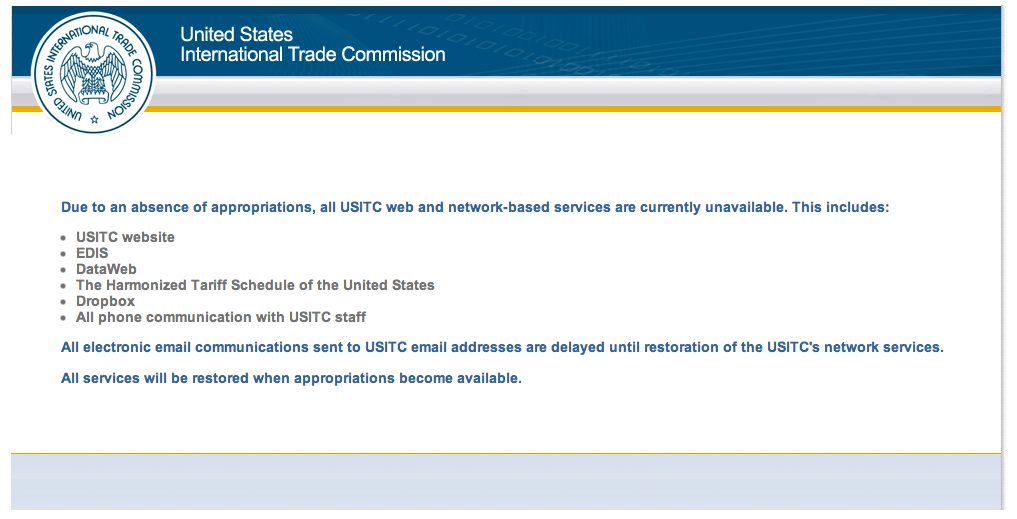Today, the news is being dominated by the partial shutdown of the U.S. government. Because we focus on patents, we wanted to let readers know what’s happening to the patent world during the shutdown.
The U.S. Patent & Trademark Office will stay open. According to a public announcement on its website, the PTOPatent and Trademark Office, informally used interchangeably with USPTO. has a reserve fund from fee collections that it can use to continue to operate for about four more weeks. PTOPatent and Trademark Office, informally used interchangeably with USPTO. employees will be paid as normal and business will continue as usual during that time.
If the shutdown continues longer than that, most PTOPatent and Trademark Office, informally used interchangeably with USPTO. employees (including patent and trademark examiners) would be furloughed. But because there are statutory filing deadlines that could cost someone a patent or a trademark, all the public filing and payment systems will stay up.
Federal courts will also stay open. The federal courts have a reserve of about two weeks. Some civil cases (like patent cases) might see their schedules moved around, but the filing systems will stay up and judges and clerks will still be working.
The U.S. International Trade Commission, however, is putting all investigations on hold during the shutdown. All deadlines will be extended by the length of the shutdown, and all hearings and conferences will be postponed. I would link to the announcement by the ITCInternational Trade Commission, but the ITCInternational Trade Commission has put this notice up on the website:
And last, but not least, Congressional staffers are affected by the shutdown as well. Some staffers have been declared “non-essential” and furloughed. That means that patent reform is probably stalled for the time being. Between the shutdown dominating the discussion and reduced staffing, it’s hard to see much progress being made in the near future.
We’ll update this post if we learn anything else.

